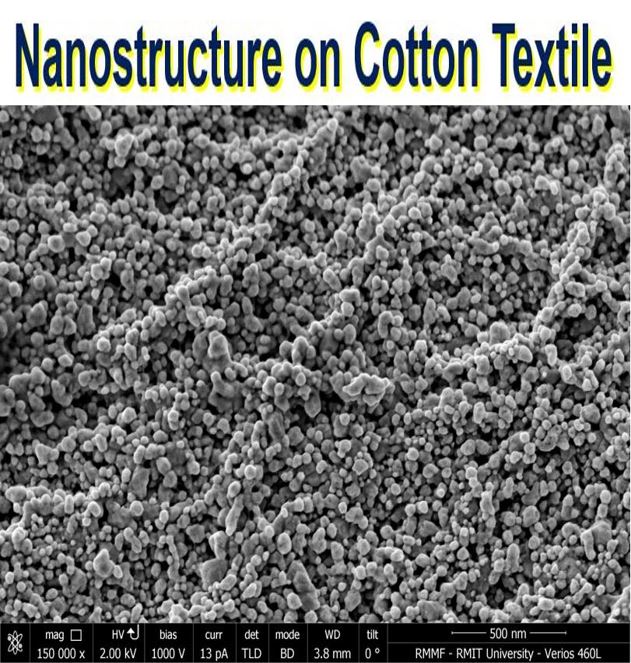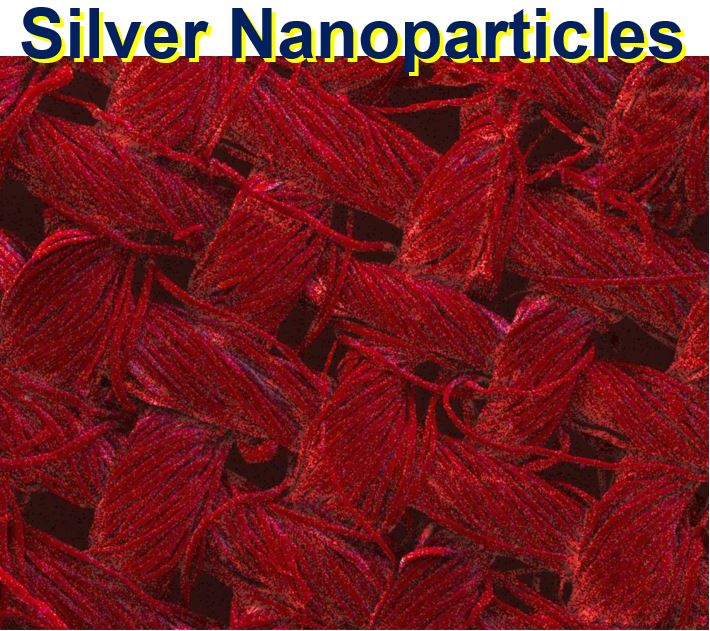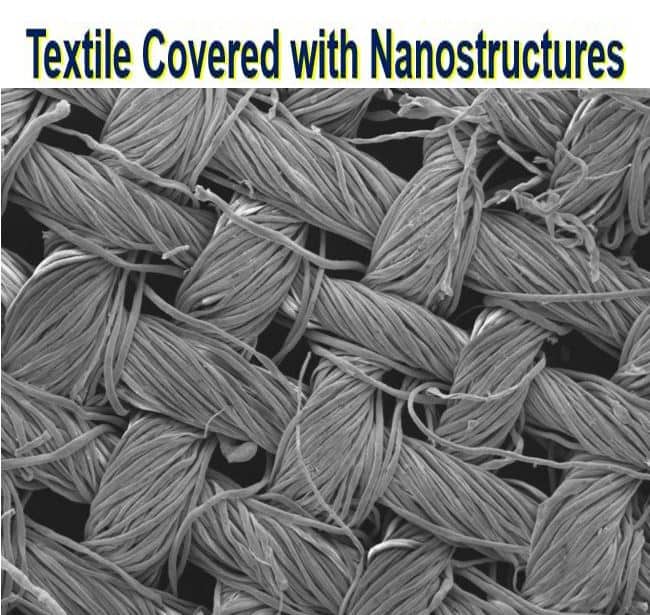Imagine clothes that you never need to wash, because they self-clean when exposed to sunlight or a light bulb. According to Australian scientists, who created a material that can degrade organic matter when exposed to light, this could soon become a reality.
Dr. Rajesh Ramanathan, from RMIT University in Melbourne, Australia, and colleagues explained in the journal Advanced Materials Interfaces (citation below) that soon all you will need to get your washing done is a spot of sunshine or a handy lamp, thanks to nano research into self-cleaning textiles.
Self-cleaning textiles
The scientists say they have developed an efficient and cheap new way to grow special nanostructures. These, when placed within textiles, effectively make them self-cleaning, as long as you have access to some kind of light.
 A Close-up of the nanostructures grown on cotton textiles by RMIT University researchers. Image magnified 150,000 times. (Image: eurekalert.org. Credit: RMIT University)
A Close-up of the nanostructures grown on cotton textiles by RMIT University researchers. Image magnified 150,000 times. (Image: eurekalert.org. Credit: RMIT University)
Their work paves the way towards nano-enhanced textiles that can spontaneously self-clean, getting rid of grime and stains simply by being worn out in the Sun or placed under a light bulb.
Dr. Ramanathan and colleagues say their breakthrough technology could be used in several catalysis-based industries such as pharmaceuticals, agrochemicals and natural products. They say it could be scaled up to industrial levels.
Dr. Ramanathan added:
“The advantage of textiles is they already have a 3D structure so they are great at absorbing light, which in turn speeds up the process of degrading organic matter.”
“There’s more work to do to before we can start throwing out our washing machines, but this advance lays a strong foundation for the future development of fully self-cleaning textiles.”
 The red color indicates the presence of silver nanoparticles. The total coverage on the image shows the nanostructures grown by the RMIT team are present throughout the textile. Image magnified 200 times. (Image: eurekalert.org. Credit: RMIT University)
The red color indicates the presence of silver nanoparticles. The total coverage on the image shows the nanostructures grown by the RMIT team are present throughout the textile. Image magnified 200 times. (Image: eurekalert.org. Credit: RMIT University)
The scientists from RMIT’s Ian Potter NanoBioSensing Facility and NanoBiotechnology Research Lab worked with silver and copper-based nanostructures, which are known to have good light-absorbing qualities.
‘Hot electrons’ degrade organic matter
When the nanostructures were exposed to sunlight or a light bulb, they received an energy boost that created ‘hot electrons’. These hot electrons released an energy burst that enabled the nanostructures to degrade organic matter.
The scientists’ challenge has been to bring the technology out of the laboratory by working out how to manufacture these nanostructures on an industrial scale and attach them permanently to textiles.
The RMIT team grew the nanostructures directly onto the target textiles by dipping them into a few solutions. They were able to develop stable nanostructures within thirty minutes.
When the nano-enhanced textiles were exposed to light, they completely cleaned themselves within six minutes.
 Cotton textile covered with nanostructures invisible to the naked eye. Image magnified 200 times. (Image: eurekalert.org. Credit: RMIT University)
Cotton textile covered with nanostructures invisible to the naked eye. Image magnified 200 times. (Image: eurekalert.org. Credit: RMIT University)
Dr. Ramanathan said:
“Our next step will be to test our nano-enhanced textiles with organic compounds that could be more relevant to consumers, to see how quickly they can handle common stains like tomato sauce or wine.”
In an Abstract in the journal, the authors wrote:
“The outcomes presented in this work will be helpful in designing new multifunctional fabrics with the ability to absorb visible light and thereby enhance light-activated catalytic processes.”
Citation: “Robust Nanostructured Silver and Copper Fabrics with Localized Surface Plasmon Resonance Property for Effective Visible Light Induced Reductive Catalysis,” Samuel R. Anderson, Anthony P. O’Mullane, Matthew R. Field, Mahsa Mohammadtaheri, Dipesh Kumar, Rajesh Ramanathan and Vipul Bansal. Advanced Materials Interfaces. 23 March 2016. DOI: 10.1002/admi.201500632.
Video – Enhanced textile self cleans using light
Scientists at RMIT University have developed materials containing nanostructures which can break down organic matter when exposed to light.

Comments are closed.